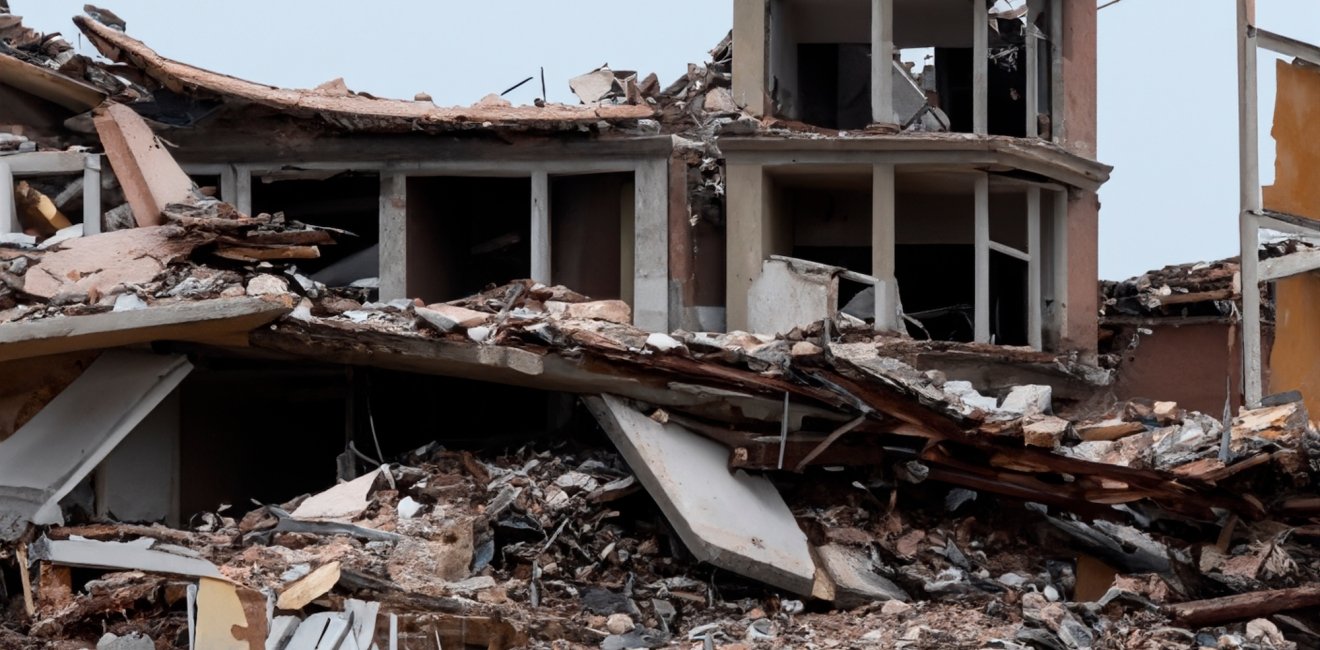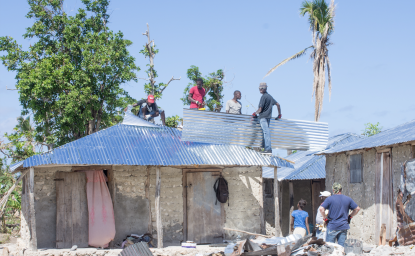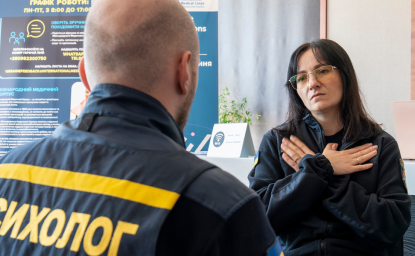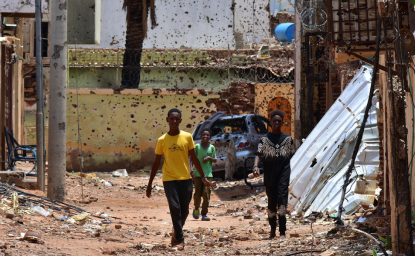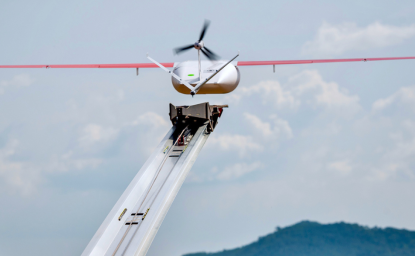Following the devastating natural disasters in Morocco and Libya, the Middle East Program interviewed Journalist Achref Chibani, providing insights into the ongoing crisis and the challenges faced in delivering humanitarian aid. Chibani discusses the complex situation in Libya due to its civil war, the impact of climate change on peace and security, and the potential role of international efforts, including COP28, in addressing climate-related disasters and building resilience in the MENA region.
MEP: On 8 September 2023, a 6.8 earthquake struck Morocco's Marrakesh-Safi region. Two days later, Storm Daniel hit Libya with torrential rain that caused heavy floods. In Morocco, almost 3,000 people were killed by the quake and its aftermath, and thousands more were injured. 1200 Buildings in the area remain at risk, endangering people's lives. In Libya, more than 11,000 people were killed by the floods and many more are missing. Rescue operations are ongoing, hampered by poor infrastructure and, in the case of Libya, conflict. Can you tell us more about how you see the situation unfolding in both countries? What are the main obstacles to the delivery of humanitarian aid?
Chibani: The relief effort in Libya had the potential to be hampered and complicated by its protracted civil war. A complex conflict that involves a range of actors and militias, the civil war can be broadly split into two factions: on one side, Khalifa Haftar and the Libyan National Army (LNA), and on the other side, the UN-recognized Government of National Accord. Derna has been under the control of Haftar's forces since 2018. In Libya, we have seen donations and support from across geopolitical divides. Egypt and the United Arab Emirates (UAE), who have supported the eastern-based Libyan National Army for years, were especially swift in their assistance. But other countries have also contributed, defying traditional geopolitical boundaries. For instance, a day after the flood, Türkiye and Italy – traditionally supported the Tripoli-based government – flew in the first members of their respective search-and-rescue teams and equipment and sent shiploads of supplies. That being said, I'm afraid that as time passes and international attention inevitably moves on, we will see a reduction in aid and support for Libya.
Moreover, in Libya and Morocco, damaged infrastructure has hampered rescue efforts. In Morocco, many of the worst-hit villages are in the High Atlas Mountains, some distance from Marrakesh. Mountain roads in Morocco and infrastructure compromised by ten years of civil war in Libya have made bringing aid and rescue services difficult. In addition, traffic congestion has proved a significant obstacle to relief efforts in Libya and Morocco. The earthquake and flood have caused large movements in people and goods, as survivors have traveled to places of safety. At times, this has blocked aid agencies from accessing remote areas. Finally, relief efforts have been further complicated by corrupt and militarised governance systems poorly prepared for dealing with international aid agencies. These systems cannot absorb assistance and authorities are wary of allowing foreigners unfettered access to the countries.
MEP: Given the level of destruction and the loss of human lives in Morocco and Libya, what does the road to recovery look like? How can the international community work in these areas to rehabilitate and rebuild?
Chibani: As I see it, recovery from the earthquake and storm's damage will likely be decades-long, like in Turkey after the 2023 earthquake, where reconstruction will need up to five years, analysts say. Unlike Turkey, however, Libya has the added complication of rebuilding Derna in the context of state failure and civil war. This is where the international community can step in and offer the kind of institutional support and rebuilding know-how that Libya currently lacks. In Morocco, we see quite different dynamics and the Makhzan has the necessary bureaucratic and institutional apparatus to manage the rebuilding effort. Here, the major need is financial and the international community should look to offer targeted financial support to the rebuilding effort.
MEP: What are some of the lessons learned from both natural disasters about the nexus between climate change, peace and security?
Chibani: As climate change bites, we will likely see more frequent and intense natural disasters, such as the Libyan dam collapse and flooding. Some scientists are already pointing to the growing frequency of tropical-like storms in the Mediterranean, like Storm Daniel, as an effect of climate change. Thus, climate becomes a key new variable that intervenes in the MENA region's peace-security nexus. On the surface, climate change is likely to destabilize the region further and undermine the security of its sovereign states. Displaced populations, massive damage to infrastructure, and economic disruption can all push the region toward violence. That being said, there are signs that climate change – when understood as a danger that transcends borders – encourages transnational solidarities and forms of cooperation. The outpouring of relief funds and sympathy for both Libya and Morocco from across the Arab world suggest that climate change relief has the potential to put aside older geopolitical rivalries and conflicts. That being said, it is unclear whether such acts of solidarity are states of geopolitical exception or can act as a catalyst for more durable forms of regional cooperation. Also, in Morocco, we have seen the ability of local communities to quickly improvise bottom-up forms of aid and cooperation between villages, governorates and regions. For example, Ali Al-Karakbi, a young Moroccan specialist in electric cars and charging stations, along with his friends, have succeeded in providing free internet services in some areas affected by the earthquake by connecting to the "Starlink" satellite network. This helped many people communicate with their families and provided a lighting source in the area. Here, the international community should look to find ways to support local actors who hold local knowledge and know-how.
MEP: Both Morocco and Libya are in the MENA region, and for the second consecutive year, COP is hosted in the region, this year in the United Arab Emirates. How can COP28 move governments and key stakeholders forward in the region to address climate change and its impact on communities?
Chibani: Before the Libya and Morocco natural disasters, the UAE had already stated its desire to focus on implementing Loss and Damage Funds at the upcoming COP28 in Dubai, continuing the work Egypt began at COP27 in 2022. The Libya disaster offers a striking example of the challenges implementing such a Fund will face and should be at the front of delegates' minds during the Conference. In particular, it shows the difficulty in predicting where is vulnerable and to what kinds of climate change-induced phenomenon. While some had warned of a possible Derna Dam collapse, Libya was generally not viewed as a country that was particularly vulnerable to flooding and storm surges. How can the Loss and Damage Fund account for and build resilience against such outlier climate change-induced events? And what are the mechanisms that might allow the fund to build resilience in countries such as Libya? These questions should be central to debates around the Fund at COP28.
The flooding in Libya and the Moroccan earthquake have shone a light on the MENA region's vulnerability to natural disasters and its lack of disaster preparedness. As climate change increases the likelihood of such disasters, it is paramount that new early warning systems and relief mechanisms are put in place so that local communities are more resilient to such natural disasters.
The views expressed in this article are those of the author and do not express the official position of the Wilson Center.

